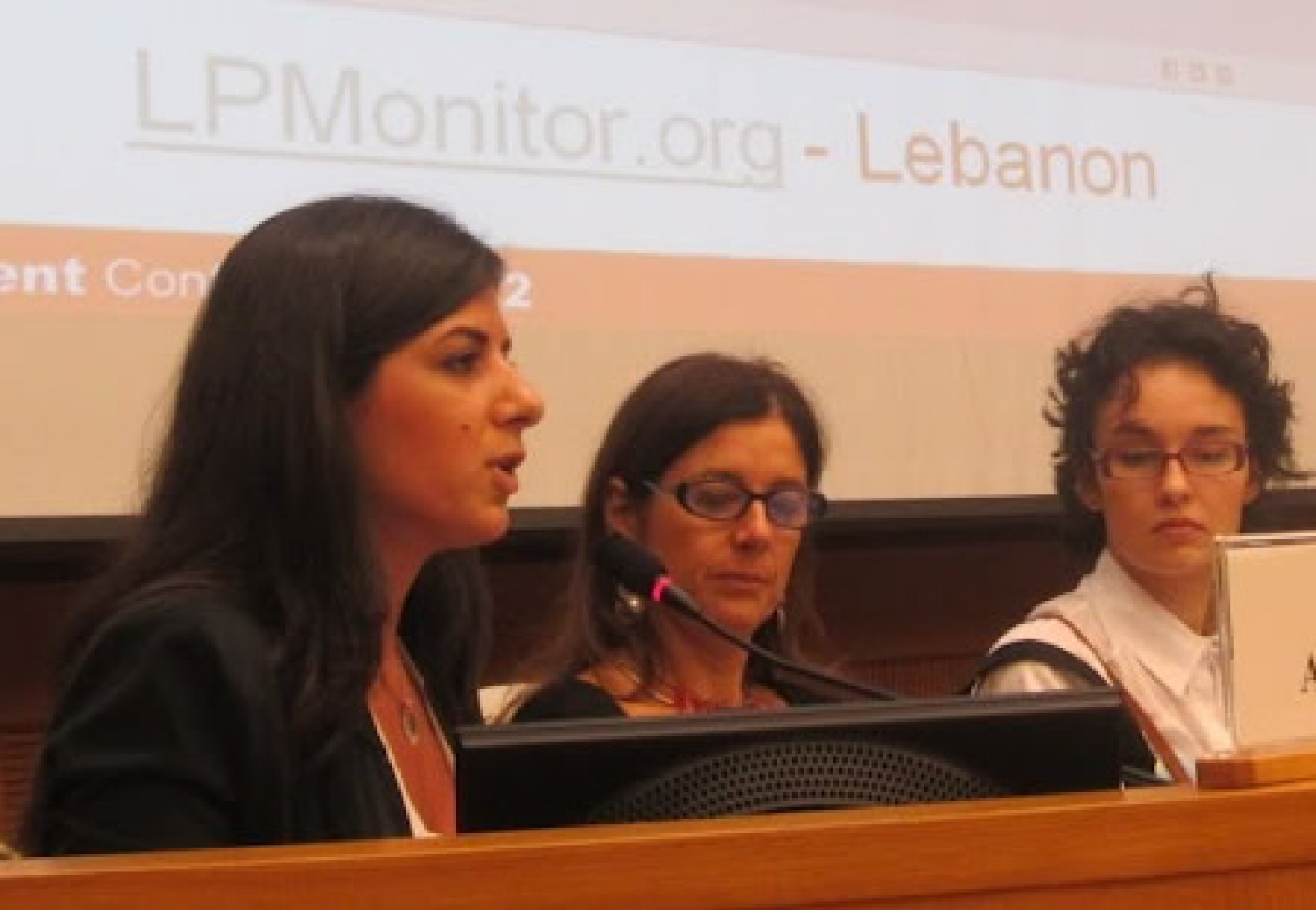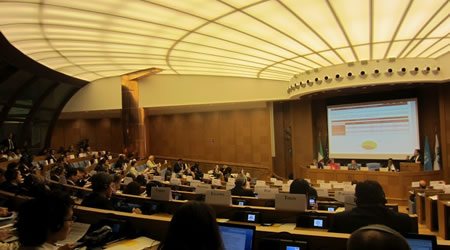
SHARE
On the International Day of Democracy, Sept. 15, civil society organizations from across the globe joined in a call to parliaments worldwide for stronger collaboration to improve openness, transparency and citizen participation in the legislative process.
With support from more than 90 civil society parliamentary monitoring organizations (PMOs) from over 60 countries, the Declaration on Parliamentary Openness was launched at the World e-Parliament Conference 2012 in Rome in the presence of more than 400 parliamentarians and parliamentary staff. The conference was co-organized by the Inter-Parliamentary Union (IPU) and the United Nations through the Global Centre for ICT in Parliament and hosted by Italy’s Chamber of Deputies.
NDI, with its partners, the Sunlight Foundation and the Latin American Network for Legislative Transparency (LALT Network), has supported efforts by the world’s PMOs to share information and good practice and to advocate for parliaments to improve citizen information about parliament and parliamentary business.
The declaration was the result of a collaborative process that began last April at the PMO Leaders Conference in Washington, D.C., that featured PMO representatives from 38 countries. The conference was hosted by NDI, the Sunlight Foundation and the LALT Network, and was supported by the Omidyar Network, the Open Society Foundations the National Endowment for Democracy, the World Bank Institute, and the Embassy of Mexico to the U.S. The declaration was also discussed at the Open Legislative Data Conference in Paris, hosted by the French PMO Regards Citoyens, and the Center for European Studies of Sciences Po and Médialab Sciences Po.

The declaration, along with commentary documenting good practices on parliamentary openness, can be found on the website OpeningParliament.org, a joint initiative of NDI, Sunlight and the LALT Network. The declaration’s launch comes as civil society organizations are increasingly seeking opportunities to engage collaboratively with parliaments to respond to increased citizen interest in accessing parliamentary and governmental information. By participating in the Open Government Partnership (OGP), some 55 governments have agreed to develop national action plans, supported by civil society input and monitoring.
The declaration on parliamentary openness seeks to complement the OGP’s work. “The declaration draws inspiration from OGP to encourage parliaments to work with PMOs to improve their records on openness, accountability and citizen engagement,” said María Baron, co-coordinator of the LALT Network. “Parliaments need to do more to demonstrate that they are committed to representing citizens’ interests, and citizens need parliaments to use their oversight powers to ensure government openness and accountability."
Dinara Oshurahunova, who heads the Coalition for Democracy and Civil Society in Kyrgyzstan, said, “…for me, this declaration is important in connecting citizens from all over the world for a single request to our parliaments – openness.”
As Anders Johnsson, secretary general of the Inter-Parliamentary Union, has noted, many parliaments have recognized the need to engage more with their citizens and are taking innovative actions to improve citizen outreach and participation: “The IPU/United Nations Development Programme Global Parliamentary Report also highlights how PMOs can boost public knowledge of parliament if there is a constructive relationship between them,” he said.
NDI is actively engaged both in assisting PMOs to improve the quality of their efforts to support parliamentary development and in supporting parliaments that are working to improve their outreach to citizens through the innovative use of information and communications technology. For example, NDI has supported the Ugandan parliament in piloting UsPeak, which uses text (SMS) messages to assist communications between citizens and parliament.
“Citizens are increasingly in a demanding mood,” said NDI President Kenneth Wollack. “In many parts of the world, information and communications technology has played an important role in amplifying the voices of ordinary citizens. But these developments have also posed challenges for democratic representative institutions, such as political parties and parliaments. NDI hopes that the Declaration on Parliamentary Openness can help stimulate a constructive dialogue on these issues.”
The last point was echoed by Gherardo Casini, of the United Nations Department of Economic and Social Affairs and secretary to the high-level board of the Global Centre for ICT in Parliament: “The declaration affirms the potential of PMOs to amplify parliamentary efforts to open to citizens’ voices—many of which were on display at the World e-Parliament Conference—and to assist parliaments in taking advantage of the opportunities presented by rapid technological innovation.”
A video of the full launch can also be found here.
Published Sept. 17, 2012


